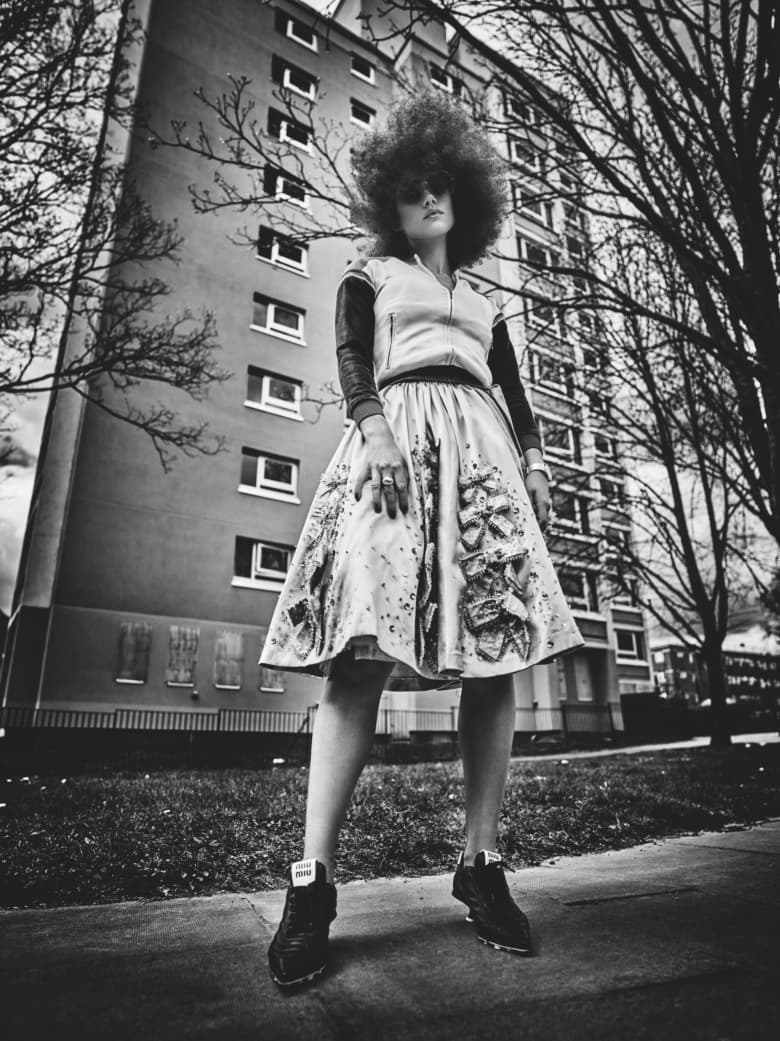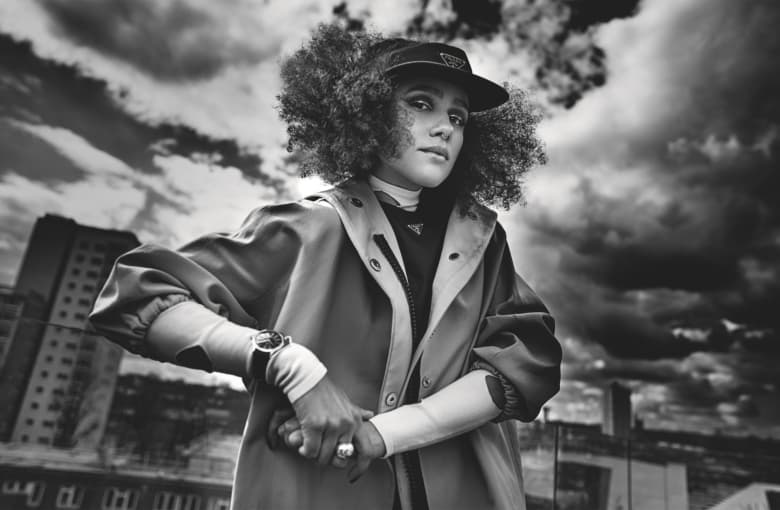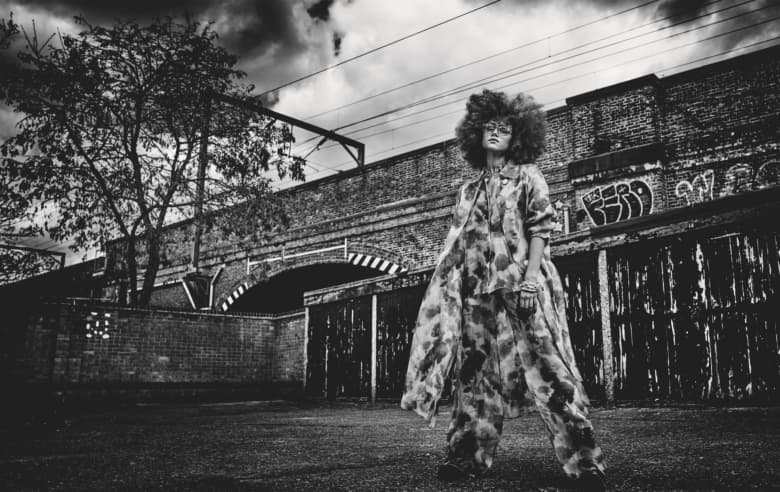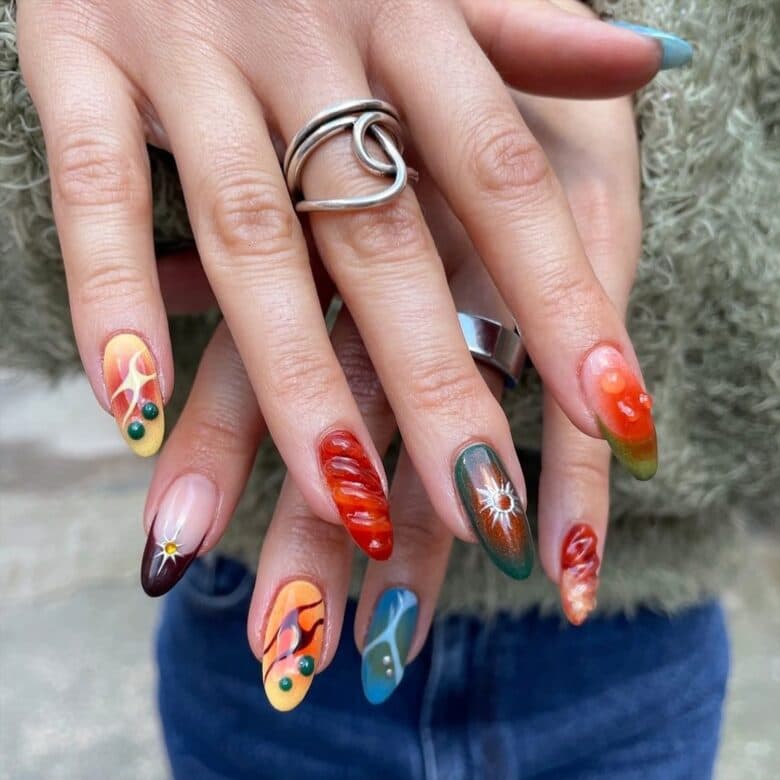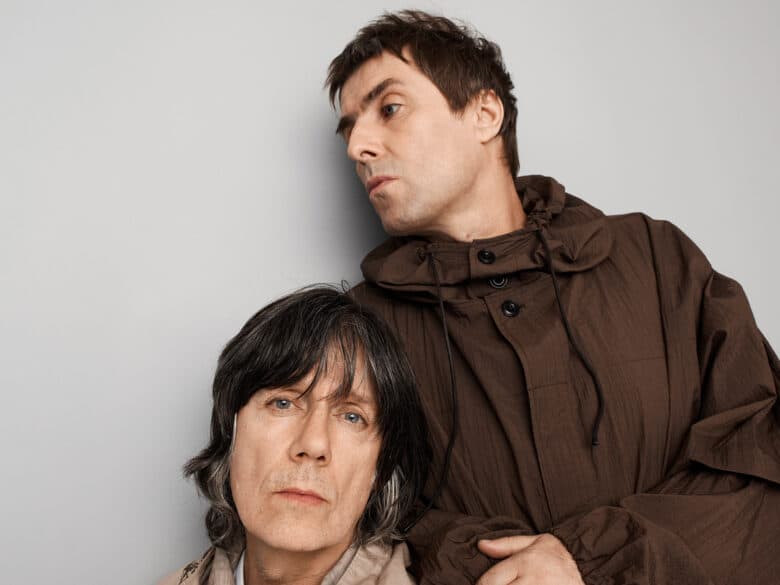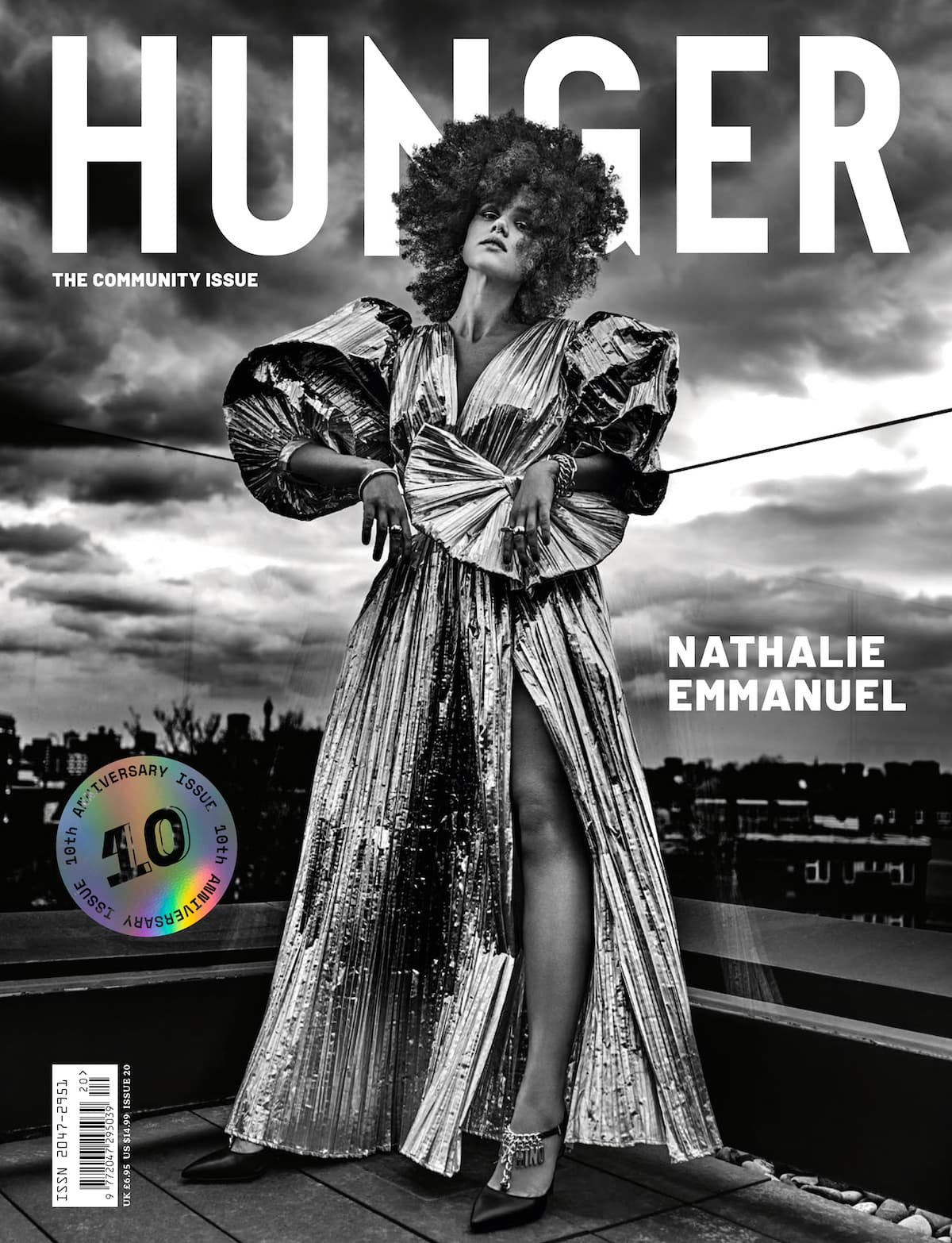
Nathalie Emmanuel is quite the chameleon. Fresh off a plane from the Dominican Republic by way of Prague, where she spent months safely shooting two new films, the Game of Thrones alum has been sculpting a splendid on-screen repertoire since we watched her brutal beheading in the final series of the biggest TV show in the world. A global pandemic, countless lockdowns and a historic civil rights movement later, that all feels like a lifetime ago. Especially for Emmanuel, who has been speeding ahead since the film industry was green-lit to resume production post-COVID-19 round one. This summer, she returns to the big screen for the ninth instalment of the blockbuster franchise Fast & Furious. Not too shabby for a Southend-on-Sea girl who started out on the British soap Hollyoaks.
Back in London for the first time since September, Emmanuel has swapped palm trees and blue skies for the grey quirks of Holland Park, where she’s wrapping up an outdoor workout when we catch up on Zoom. “I’m really grateful and happy to be home,” she says. “I’m so aware of the blessings of not only working in this industry but in this climate of the world right now. But there’s just something so wonderful about coming home, it’s like coming back to yourself.” She spent the first half of 2020 deep in self-reflection, unpacking her own mental health and wellbeing when the world stopped. As a rising star making headway in Hollywood, it’s easy to get lost in the speed of the industry, rigorously moving from one project to the next without pause, a commonality that feels far too familiar. “This past year has been unbelievably hard and difficult, and our kind of social conditioning is to be like, ‘Oh, I’ve got to keep going, I’ve got to keep pushing.’ There’s never time to acknowledge what we’re feeling or what we’re thinking and really ask ourselves, ‘How is my mental health today? How is my emotional health?’ I tend to be the person who just pushes things down and keeps going. But I’ve learnt that showing yourself some kindness and giving yourself time to acknowledge and feel whatever it is you’re feeling is so important.”
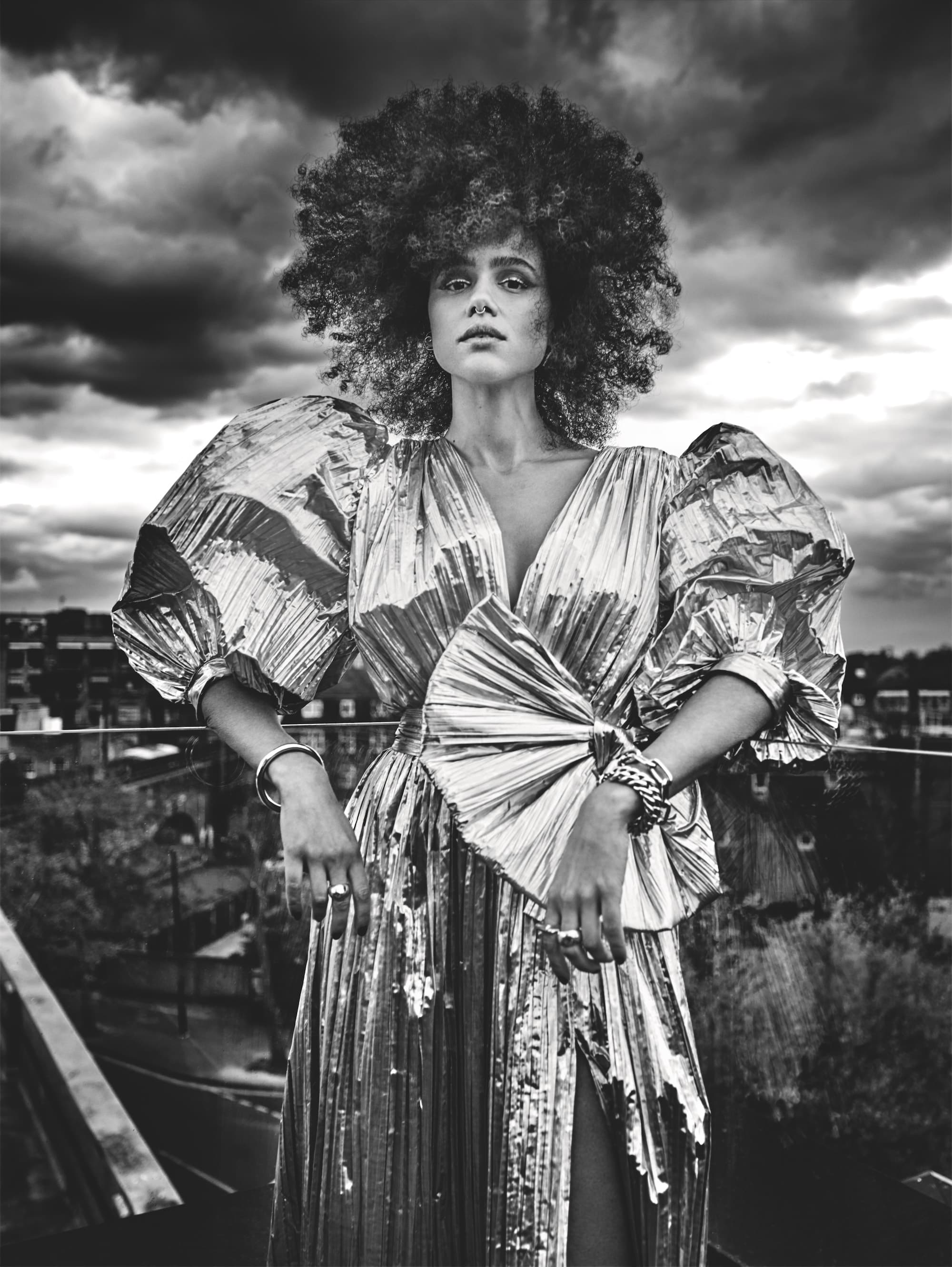
Mental health is something that the 32-year-old actress has always been an advocate of. “There’s so much fallout from this pandemic that we’re going to be feeling for years to come. But one of the many very serious issues that I think we, as a society, are going to carry forward is the deterioration of people’s mental health,” she says. “It’s such a priority to try to tackle those things and get help where we can if we need it and not be afraid to ask for it. I feel really passionate about not being ashamed to admit that you’ve got some challenges with your mental health. I absolutely do and have had to address some of those things. I would truly encourage other people to do the same if they can.” Staying in communication with the people around her is how she keeps on top of her own struggles. Meditation is also part of her daily routine, but most notably, self-expression has become key. “We’re all very good at pretending everything’s OK. But I’ve gotten better at expressing when I’m feeling things too hard.”
As a kid, Emmanuel was a shy mummy’s girl who fell into acting as a way to build confidence. Some of her most vivid childhood memories are of breakdowns at the school gates when her mother was dropping her off. “I just couldn’t stand being away from her. I’d have an actual crisis,” she laughs. “Acting and going to performing arts [classes] really helped with that.” Emmanuel was 10 when she landed her first major gig, playing young Nala in the West End production of The Lion King. She’s still close with the cast; they share a WhatsApp group where they regularly chat, and she calls British actor Luke Youngblood, who played young Simba, a brother. Her next big project would come years later (her education was a priority for her Dominican-British mother), when she was cast as teenage heroin addict Sasha Valentine on Hollyoaks. “I was in sixth form when I got the job at Hollyoaks and I had this really tough choice to make, between something that I’d been working towards since I was a little kid or staying in school. I remember being so torn for the three days I had to make my decision. My teachers would tell me that it was a bad idea to leave and that acting is so unpredictable, it was crazy.” Thankfully, she ignored them. Her big break came when she got the call about Game of Thrones, in which she was cast as Missandei – a slave who became righthand woman to Daenerys Targaryen. It was a life-changing role that opened the heavily guarded gates of Hollywood for her, leading to a new industry status as one to watch. Former colleagues now include John Travolta and Kevin Hart, who she worked with on Quibi’s tongue-in-cheek series Die Hart; Mindy Kaling, who recruited her as the lead for her TV adaptation of Four Weddings and a Funeral; and the star-studded cast of Fast & Furious, with whom she has now shot three films.
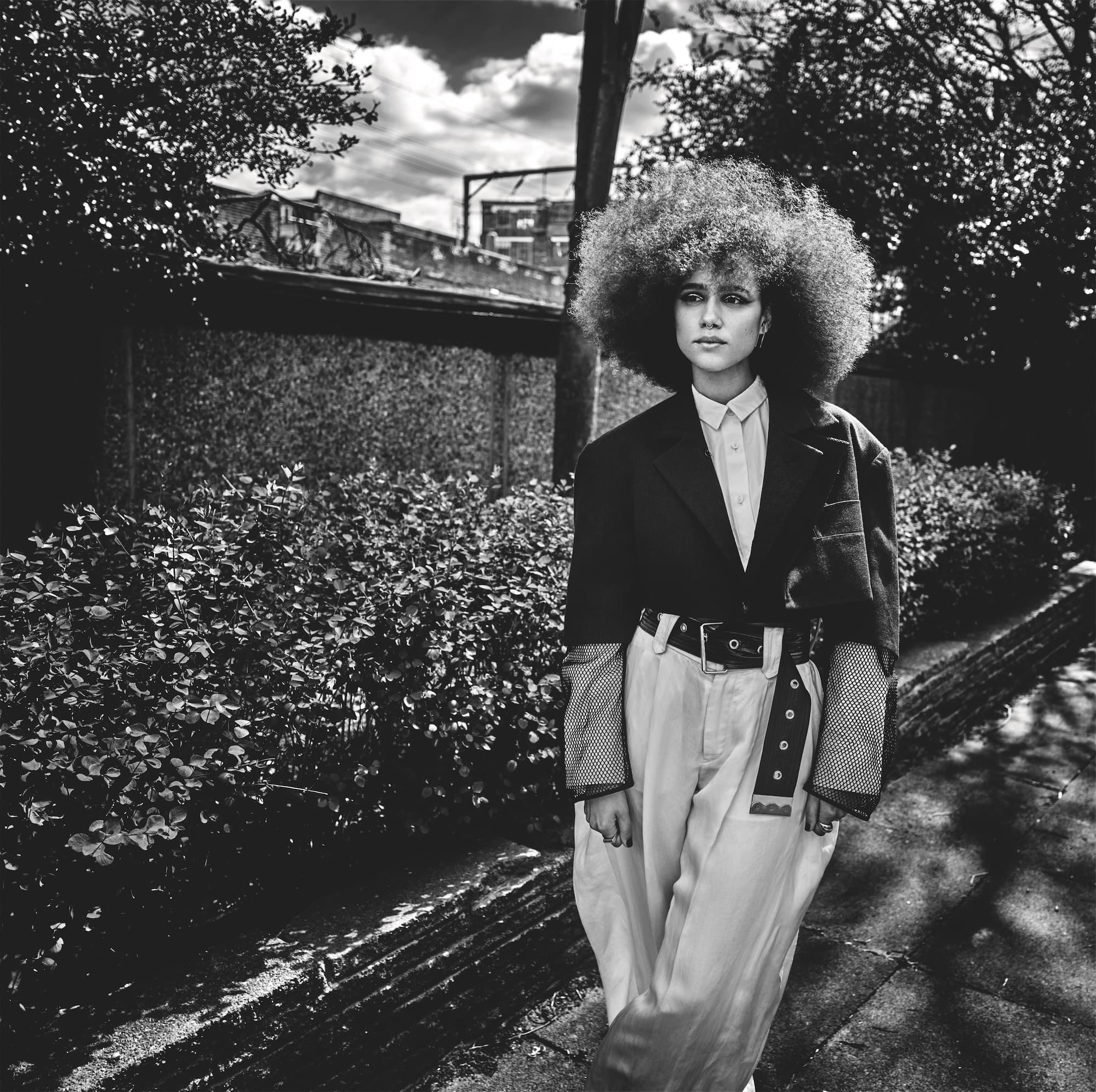
Her work has given her a platform, and it’s one she is intent on using for change. During last summer’s Black Lives Matter protests, Nathalie marched through the streets of London with thousands of others following the police murders of George Floyd and Breonna Taylor in the US. Then again to demand justice for Shukri Abdi, a 12-year-old Somali refugee who was found dead in a river in Bury. “I do feel that there is a lot of real intention to make the systemic changes we need when it comes to racism, but for my own sanity I always retain a healthy dose of scepticism,” she says, often using her platform to promote anti-racism and social justice. “A friend of mine once gave me an analogy that I thought was a sad but very real visual understanding of this experience. If you’re out at sea and you’re being pulled out by the current, you have to keep treading water and paddling to get to shore. For me, that shore represents this beautifully inclusive world, where everyone has equal opportunity, rights and pay. So we have to keep treading water, because as soon as we stop paddling, we get pulled back out further. That’s how I feel about dismantling racism, misogyny, ableism and homophobia. We have to keep paddling, even though we’re so tired. We’re really tired.”
Emmanuel’s own privilege isn’t lost on her. As a mixed-race woman of English and Caribbean descent, she’s incredibly aware of the ways in which colourism plays out in her favour, particularly as an actress. “There’s this old trope of palatable Blackness that often leads to mixed-race people getting placed at the centre of a story when really it should have been a Black person playing that part. It’s something I’ve tried to be really conscious of when choosing jobs. I’ve read some scripts where it’s very clear that the character was written to be a Black woman, and while I’m grateful for opportunities, I have a responsibility, because of my privilege, to say, ‘Actually, this particular opportunity isn’t for me,’” she says. “In this industry, I understand that as a mixed Black woman, any space that I take up in a white cis male dominated world is important, but there are also other people who deserve to and should be taking up space next to me and sometimes instead of me. Colourism is a very real thing, and as someone who benefits from that, it’s so important for me to be hypersensitive and hyperaware when that might be what’s happening around me.”
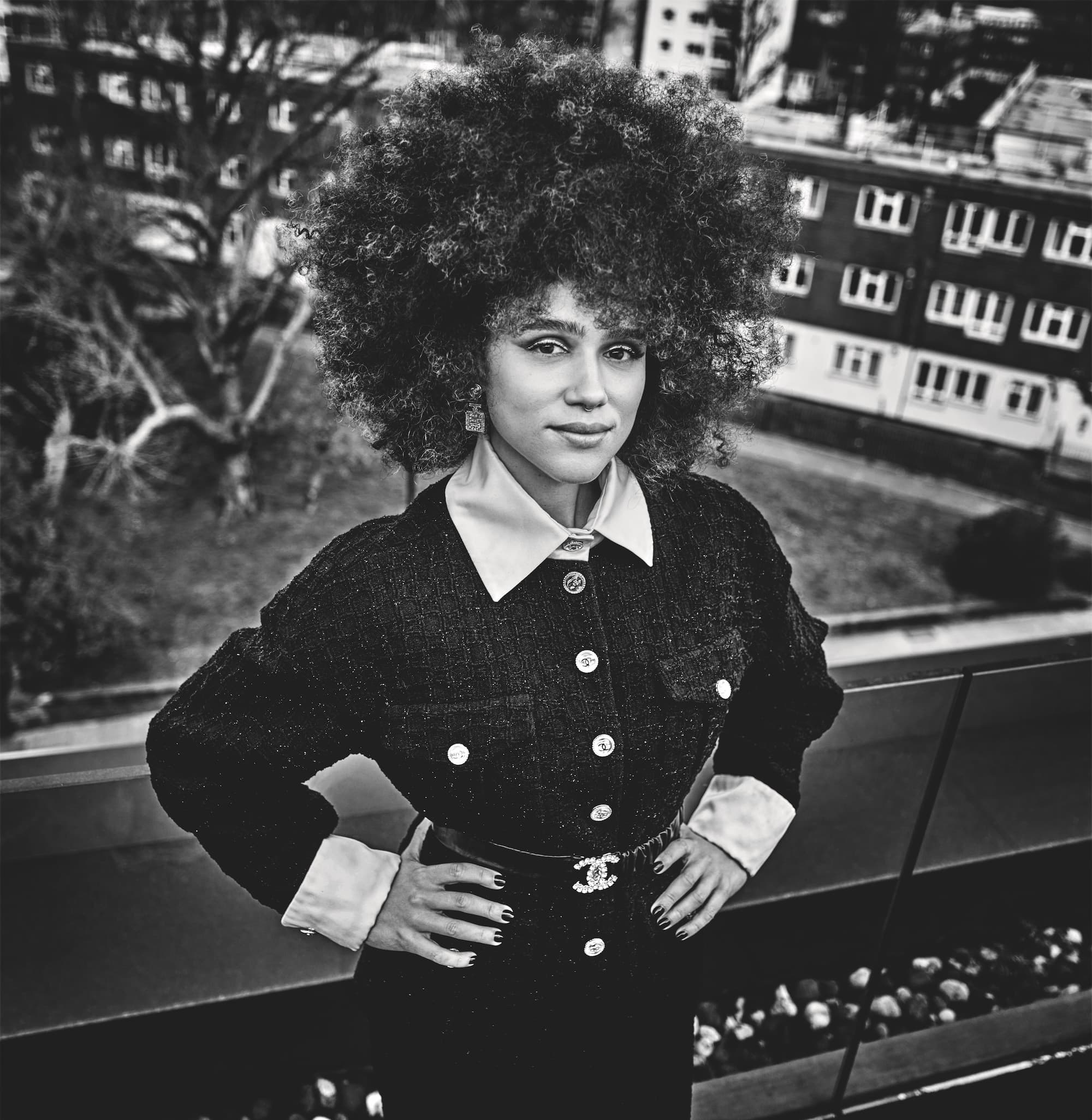
On the topic of on-screen representation, the US seems to be miles ahead of the UK in showcasing Black talent. Many of our recent greats – Daniel Kaluuya, Cynthia Erivo, Damson Idris, John Boyega et al – achieved mainstream success there after struggling to get leading roles at home. “Most of my work has been in America,” Emmanuel says. “Game of Thrones obviously gave me a huge platform over there, but it’s funny because I’ve been fortunate enough to play these big leading roles in American projects and then I’ll get an audition in England and it’s the best friend or this real peripheral character. And I’m not saying I’m too good for that, it just goes to show that there are better opportunities for us in the States. It’s like I had to do all the legwork in America before getting a stamp of approval in the UK. For me, it’s a demonstration of what we already know, no matter what some stupid report says.” She’s referring, of course, to the recent government race report that suggests institutional racism doesn’t exist in Britain.
That’s not to say the American industry doesn’t have its flaws – major ones at that. But it does explain the influx of Black British talent in Hollywood – a realm Emmanuel intends to dominate wholeheartedly, Oscars and all. But right now, her eyes are firmly fixed on a Marvel-esque role. “I really want to play a superhero next. I have this vision of myself in a sick costume and a crew of badass, ethnically diverse superhero women walking in slow motion. I just need it to happen.” So do we!
